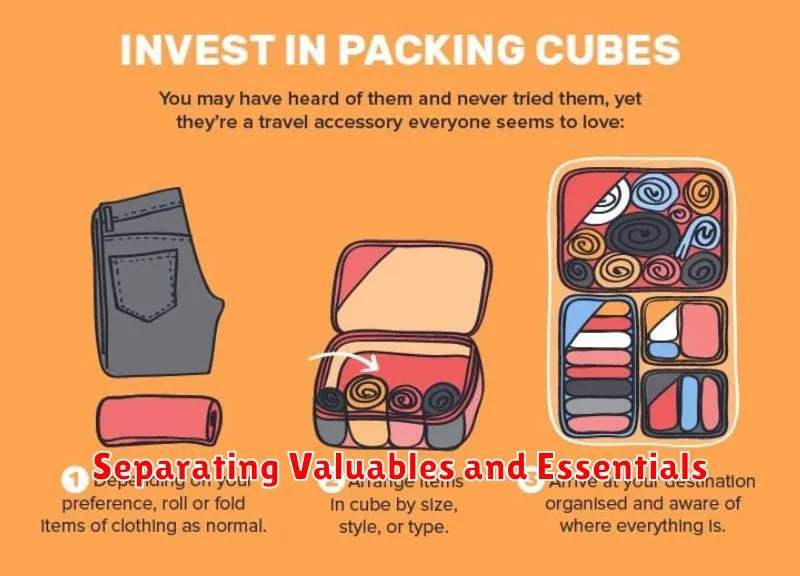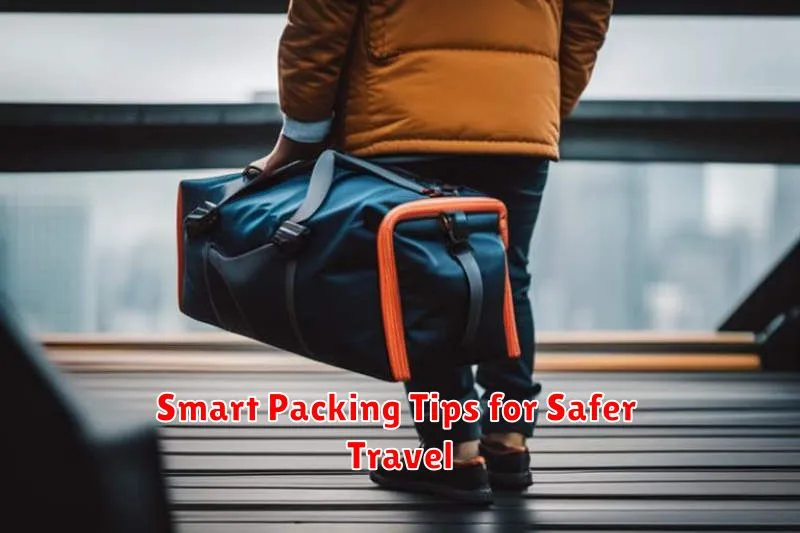Traveling can be an exciting experience, but it’s crucial to prioritize safety. One of the most effective ways to enhance your travel safety is through smart packing. Smart packing tips not only help you stay organized but also minimize the risk of theft, loss, and other travel-related mishaps. By implementing these safe travel tips, you can focus on enjoying your trip with peace of mind. This article will provide valuable packing tips for safe travel that will help you prepare for a secure and worry-free journey, whether you’re embarking on a weekend getaway or a long-term adventure.
From choosing the right luggage to organizing your belongings strategically, smart packing for travel safety involves careful consideration of what you bring and how you pack it. Learning how to pack smart can significantly reduce your vulnerability to common travel security issues. By following these smart packing tips for safer travel, you can safeguard your valuables and personal information, ensuring a smoother and more secure travel experience. This guide will equip you with practical strategies and expert advice to pack like a pro and travel with confidence.
Making a Checklist in Advance
Creating a packing checklist before a trip is a crucial step for smart and safe travel. It prevents overpacking and ensures you don’t forget essential items.
Start by listing must-have items like travel documents, medications, and toiletries. Then, consider the specific needs of your destination and planned activities. Will you need hiking boots, formal wear, or specific gear?
Categorizing your list (e.g., Clothing, Electronics, Toiletries) can help you stay organized. Review and refine your checklist as your trip approaches.
Choosing TSA-Approved Locks
While securing your luggage is essential, using non-approved locks can lead to them being damaged by the Transportation Security Administration (TSA) if they need to inspect your bags. TSA-approved locks allow TSA agents to open and relock your luggage using universal keys, preventing any damage. Look for the Travel Sentry® or Safe Skies™ logo to ensure the lock is TSA-approved.
Choosing the right lock type depends on your needs. Key locks are simple, but losing the key can be problematic. Combination locks offer keyless convenience but require remembering the combination. Consider the level of security you need and the potential for lost keys or forgotten combinations when making your choice.
Labeling Bags Clearly
Clearly labeling your luggage is crucial for a smooth travel experience. It helps identify your bags quickly and reduces the risk of misplacement or loss. Use durable luggage tags with your name, address, and phone number.
Consider adding a secondary identifier inside each bag as well, in case the external tag is damaged. This could be a business card or a simple piece of paper with your contact information.
Separating Valuables and Essentials

Prioritize security by separating valuable items and essential travel documents. Keep valuables like jewelry, electronics, and cash in your carry-on bag. This ensures they remain under your direct supervision throughout your journey.
Maintain a separate pouch or bag for essential travel documents such as your passport, visa, boarding pass, and identification cards. This allows for easy access while going through security checkpoints and minimizes the risk of misplacing these critical items.
Using GPS Luggage Trackers
GPS luggage trackers offer an extra layer of security and peace of mind. These small devices are placed inside your luggage and transmit their location data to your smartphone via an app.
This allows you to monitor your bags’ whereabouts throughout your journey, from check-in to baggage claim, and even pinpoint their location should they be misplaced or delayed.
Consider factors like battery life, network coverage, and subscription fees when selecting a tracker.
Backup Copies of Documents
Before you depart, create backup copies of all essential travel documents. This includes your passport, visa, driver’s license, flight and hotel confirmations, and medical insurance information.
Store these copies separately from the originals. Consider leaving a set with a trusted friend or family member, saving digital copies to a secure cloud service, or using a password-protected USB drive.
Having backup copies can be invaluable if your original documents are lost, stolen, or damaged during your travels.
Packing Light to Stay Mobile
Traveling light offers significant advantages in terms of safety and mobility. Reduced baggage makes you a less obvious target for theft and allows for quicker navigation through crowds and unfamiliar environments. It also minimizes the risk of lost or delayed luggage.
Consider packing versatile clothing items that can be mixed and matched to create multiple outfits. Packing cubes and compression bags can help organize your belongings and save space. Remember to check airline baggage restrictions and pack accordingly.

